“He was the lou dai [boss] who made a call and got a hundred responses,” says executive Chinese chef Alan Chan of Cassia at Capella Singapore, who has been collaborating with Tsang on charity galas since 2014.

Tsang has been galvanising Chinese chefs to take part in charity galas in places from Melbourne in Australia and Kuala Lumpur in Malaysia to Macau and Ho Chi Minh City, Vietnam, for a long time. The funds that are raised are donated to government-approved charities, medical and elderly-care institutions.
Born in rural Yuen Long in Hong Kong’s New Territories, Tsang was brought up by an older brother after their mother died. He began working in a dim sum restaurant at the age of 14.
“In Cantonese cuisine, it’s not good enough if you did dim sum or roast meats. You had to master the wok to be the big brother,” he explains. “And I wanted to be lou dai.”
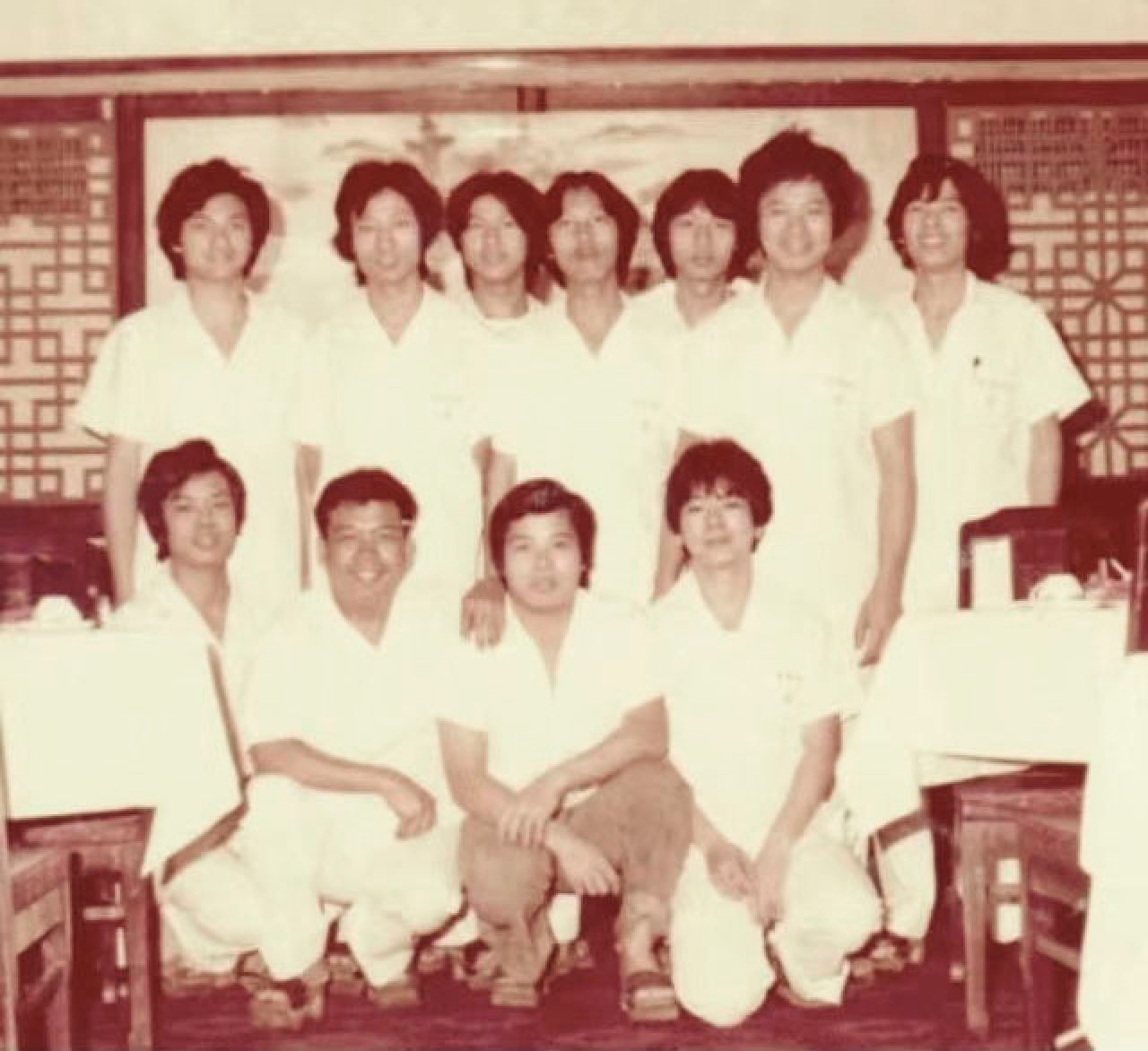
“Those days, we just toiled away in the kitchens. We had no idea what the future held and there wasn’t time to think. But look what he’s accomplished now,” Chan Yan-tak says.
Tsang got his big break in 1979, when Lei Garden founder Chan Shu-kit asked him to cook for him.
Then only 24, Tsang nevertheless impressed Chan with his order of two fried eggs and a classic dish of lobster baked in superior broth. Chan paid him a handsome deposit to secure his employment, and he ended up helping him launch a seafood restaurant that year.
Seafood restaurants, which almost always featured fish tanks at the front, were hugely popular during that time and, at Lei Garden’s first seafood restaurant, Tsang cooked a huge repertoire of seafood dishes, as well as game meats such as snake and civet.
It was a roaring success and Chan began to open more restaurants.
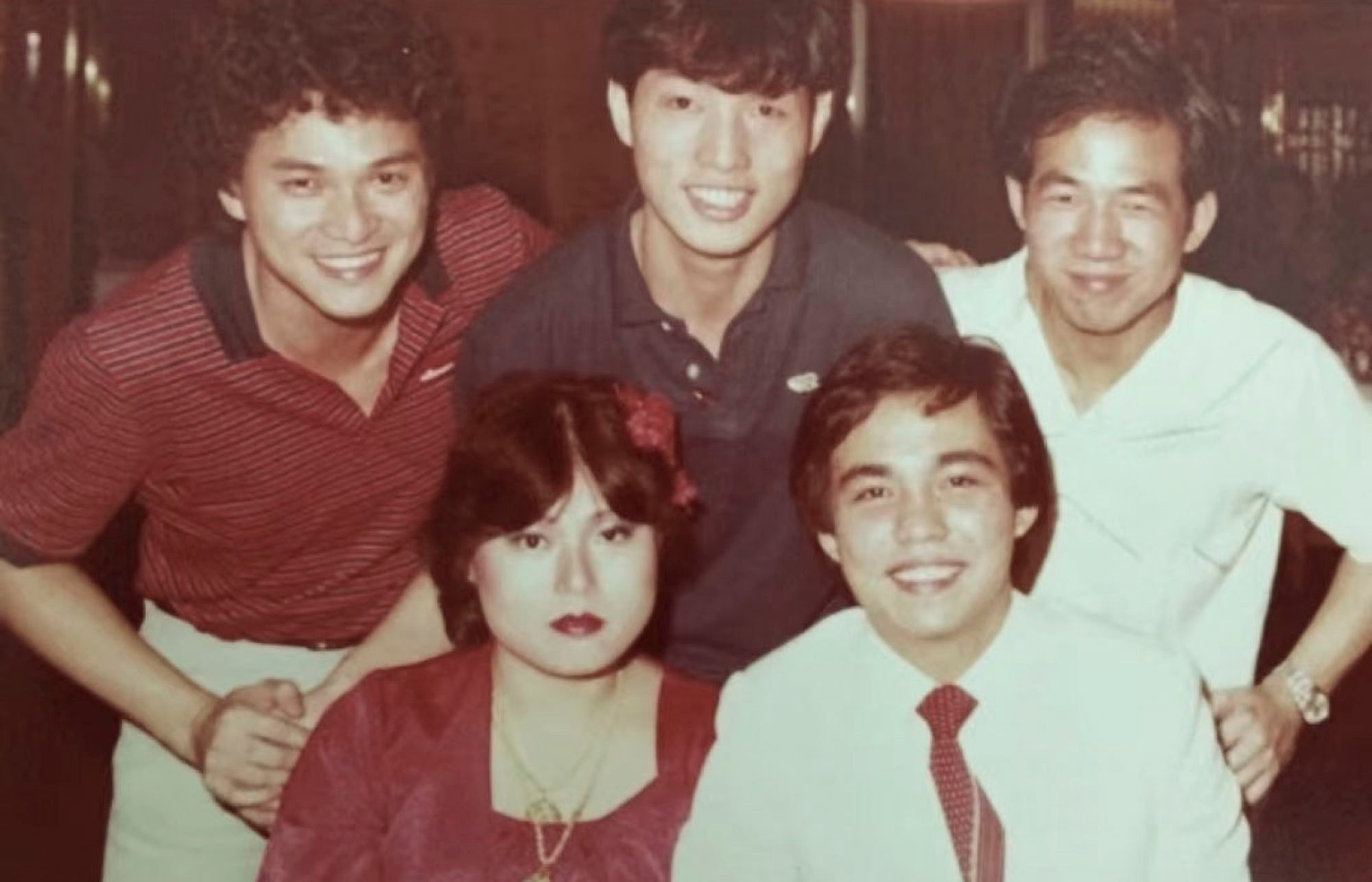
By the 1980s, the culinary sector was opening up in many Asian countries. Tsang was among those riding the first wave out of Hong Kong in 1981, when he headed to Singapore.
“At that time, anything popular in Hong Kong spread fast to Singapore. Happy Valley was a horse racing spot for the rich and famous, so we named the restaurant at Singapore Shopping Centre on Clemenceau Avenue this way,” says Tsang.
Wealthy diners were drawn to Happy Valley Restaurant, including the founder of the Shangri-La Hotels group and former Post owner Robert Kuok, Indonesian tycoon Liem Sioe Liong , Hong Kong cinema icon Run Run Shaw, and businessman Ho Yeow Koon, the founder of hospitality and property investment and management conglomerate Keck Seng Group.
It was through Ho, who loved Tsang’s cooking, that he scored his first executive chef position aged 30, at the Shangri-La in Singapore. It was the first hotel Tsang worked in, and the first two years were tough.
“In a hotel, the Chinese restaurant forms only a slice of the food and beverage business, and you have to work with the layers of management. I was not well schooled, I didn’t even speak [Mandarin Chinese]. Meetings were in English. I had to rely on others to translate,” he confesses.
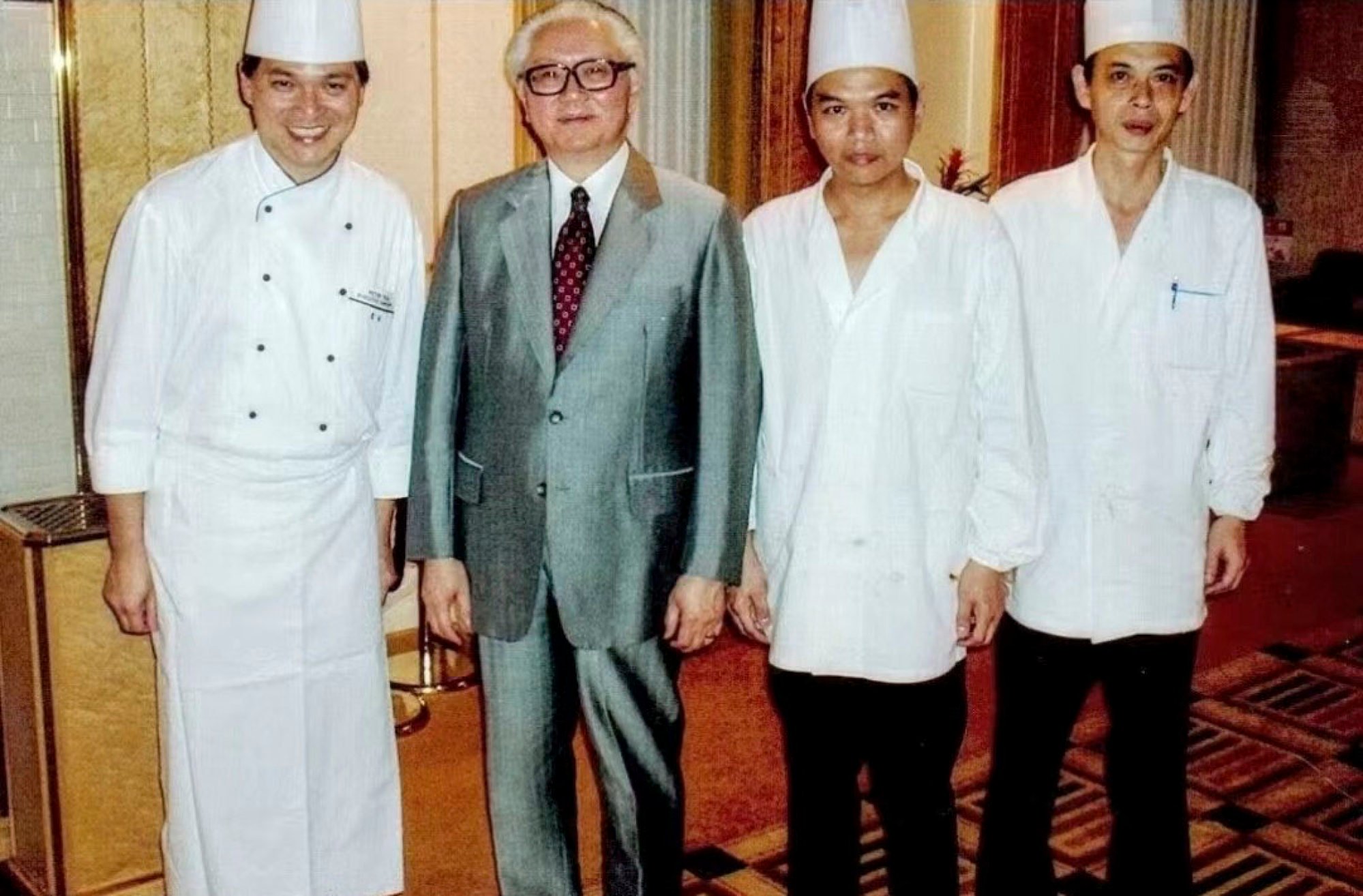
Tsang adapted quickly and was ready for work in Shanghai before long, where he took a job at the city’s first international five-star resort, the Hua Ting Sheraton.
In 2001, he began a stint at the Imperial Hotel Tokyo to showcase healthy Chinese cuisine, which led to Tsang’s next career move. The manager offered him the head chef position at the hotel’s Peking Chinese Restaurant.
“This is a legendary hotel that is more than a century old; it had never offered this title to a non-Japanese. I saw this as a fantastic opportunity,” Tsang says – one that he took. He moved to Tokyo in March in 2004 with two other chefs from Singapore.
Things were not easy here, either – Tsang did not speak Japanese and, while his boss was friendly, others remained sceptical. By the time he won the respect of his colleagues, the time had come for him to return to Singapore as the executive chef of Crystal Jade.
“In retrospect, the platform at the Shangri-La hotel was critical to my professional development. Between 1985 and 2009, I worked at and left Shangri-La Hotels three times.
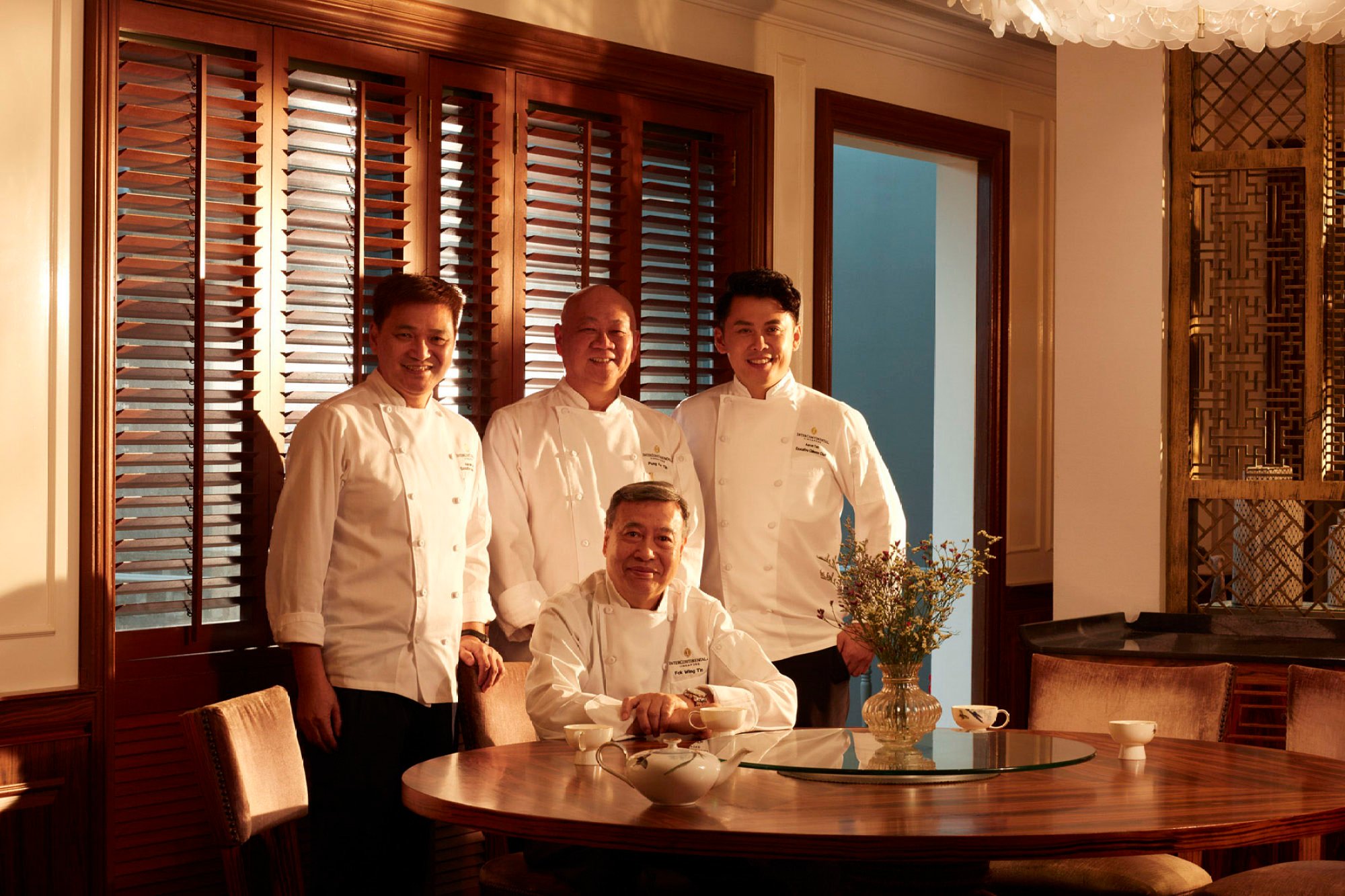
Last year, he collaborated with Chinese chefs Fok Wing Tin, Pung Lu Tin and Aaron Tan at Man Fu Yuan restaurant at the Hotel InterContinental Singapore to present “Taste of Yesteryears”, which featured Cantonese classics from the 1970s.
In April this year, they launched another Cantonese food showcase, “Echoes of Canton: Honouring Culinary Heritage”.
Tsang is widely credited for his work in developing Nanyang Cantonese cuisine that combines southern Chinese and Southeast Asian influences.
“Cantonese cuisine has gained international recognition [from] the 1970s, [but] there appears to be a growing need to address local sentiments. My work in Southeast Asia over the last four decades has evolved into Nanyang Cantonese cuisine – a natural response to the culture and ingredients of the region,” Tsang says of the development.
Chefs now want to focus on expensive dishes, but what about the satisfaction of creating a dish with humble ingredients?
Tsang won the admiration of Fok for his lively creations. “He is extremely creative. If you talk about the Chinese food scene, you cannot miss Tsang, and especially so now that he does so much for charity,” says Fok, 80.
Known for his execution of delicate flavours, Tsang feels that the appeal of Cantonese cuisine lies in its flavour. It is most apparent in soups and braised dishes, and he says flavour is what makes Cantonese cuisine precious and gives the cuisine soul.
As Tsang sees it, passing on his knowledge is no easy task.
“Suppliers sell sweet and sour pork, with seasoned pork and sauce in vacuum packs. And a chef only combines them in the wok,” he laments. “Chefs now want to focus on expensive dishes, but what about the satisfaction of creating a dish with humble ingredients?”
As a young chef, he would beg his sifu to teach him, buying his master beer during supper in exchange for trade secrets. Now Tsang has a lot to share but few who want to learn.
It is not for lack of trying – as early as 1995, Tsang, along with Fok, founded the Singapore Hong Kong Chefs Association to bring chefs together for knowledge exchange and support. Tsang was the body’s president from 2008 to 2009.
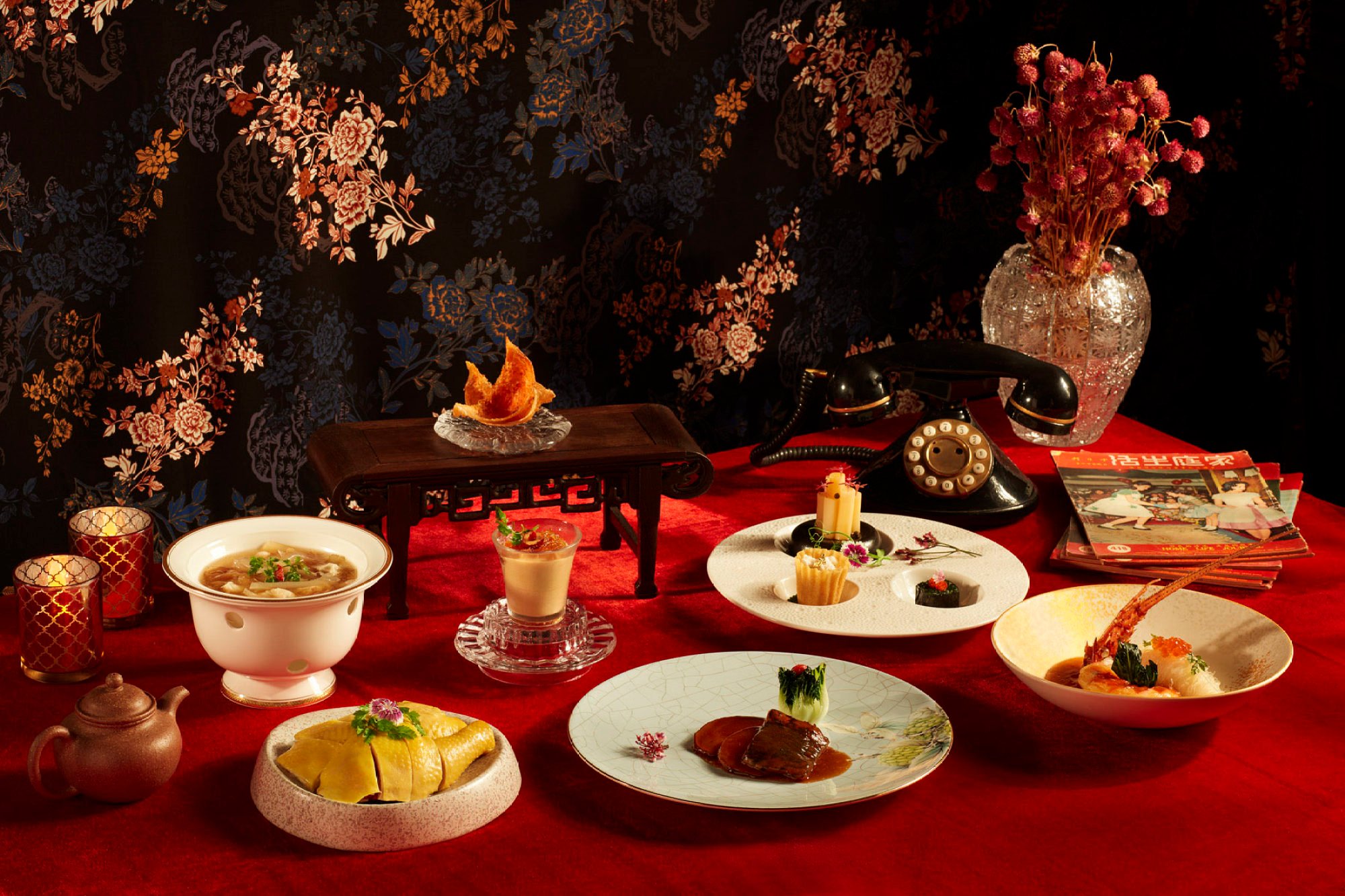
For him, learning extends beyond the kitchen. “Be with the knife and wok in the kitchen; but listen to diners in the dining room,” he says.
Going forward, Tsang intends to devote his time and energy to the things he enjoys most: cooking and charity.
“When restaurants shuttered due to poor business and failed to pay, chefs were devastated, but chef Lee was the big brother who helped chefs get what they deserved. I wanted to be like him to support our tribe.”
To some, he has already outdone his predecessor.
“Tsang, always in the league of the royal chef, is incredibly generous when it comes to imparting cooking expertise and know-how,” says Ku Keung, executive Chinese chef at Golden Peony restaurant at the Conrad Centennial Singapore.
“When I followed him around for charity, I realised how honourable the man is, how wide his connections are. I saw for myself how much more a chef can accomplish through food.”
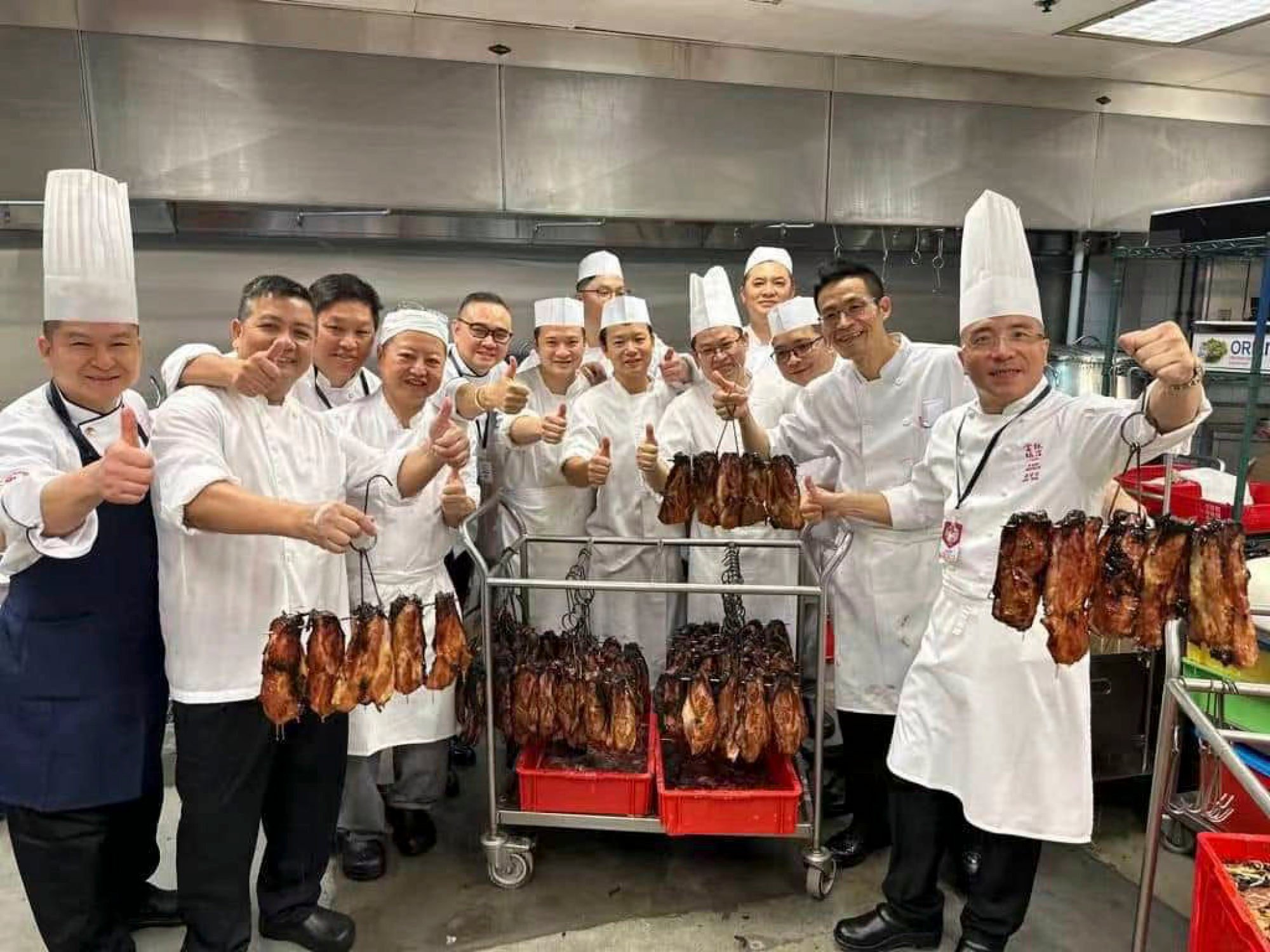
Chef Alan Chan, introduced to Tsang by Chan Yan-tak of Lung King Heen in 2001, says Tsang has become a close friend and mentor. “It was not just his contribution to the culinary scene. Ask him anything about career, family or life, and he coaches you with heart and helps you break through your personal blocks.
“He is a guiding light for the industry, and truly a great man to know.”
Reflecting on his success and the rapport he has with fellow chefs, Tsang recalls his ambition of becoming a lou dai.
“I did not stop myself because I lacked formal education. Not when I had to rely on translation during meetings in the Shangri-La hotel, not when I didn’t speak Japanese as head chef in Japan.
“I am willing to learn to make an improvement, and I know the difference will help me go further.”
The next charity gala he intends to lead will be in China in 2025.
“Many of us wanted to return to our motherland to do something meaningful. With so many chefs joining us, we needed time to plan for another precious exchange that would bring like-minded talent together,” he says.
Hong Kong, however, has been on his mind – perhaps more these days than earlier in his career.
“My roots are in Hong Kong, and I did contemplate going back,” he says. “Maybe one day, when I have trouble walking.”

